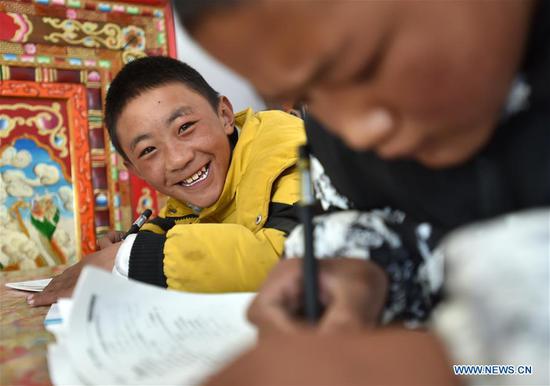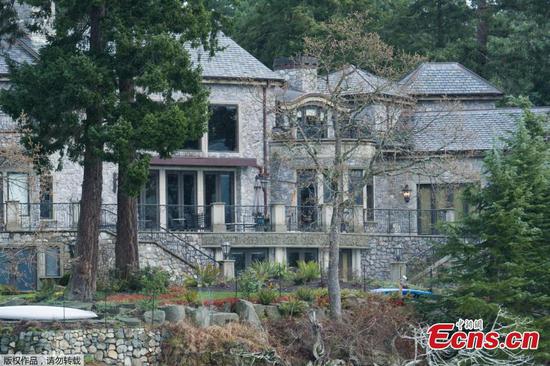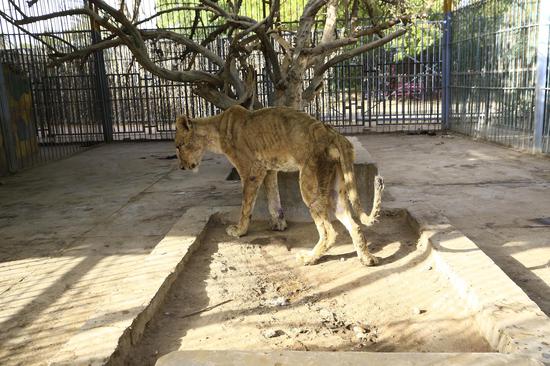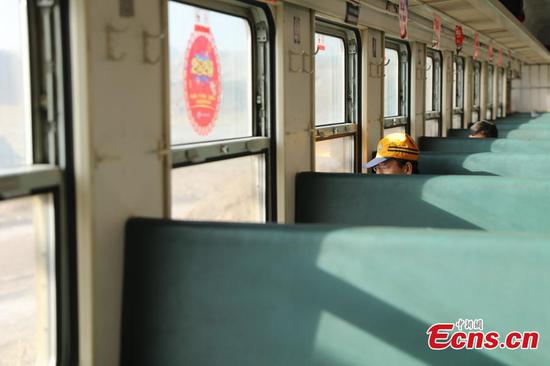
Potential homebuyers look at property models in Nantong, Jiangsu Province. (Photo by Xu Jinbai/For China Daily)
Stabilizing home prices and promoting rental housing will be the focus of the Chinese government in the property sector from the central to the local level this year, as part of efforts to further improve people's livelihoods.
Many provincial-level regions have emphasized the stable and healthy development of the real estate market in their 2020 government work reports recently when making plans and goals for this year.
The Shanghai government announced plans to keep land and home prices steady, and put about 100,000 apartments for leasing into the market. The Beijing government said it would accelerate efforts to enlarge the supply of rental housing on collective land around major industrial parks and subway stations.
Northwest China's Ningxia Hui autonomous region said it will offer more homes for low-and middle-income families and people who want to upgrade their housing conditions. South China's Hainan province said it is encouraging to transform land for commercial housing into land for rental housing, to help vitalize the inventory of vacant properties.
The country will stick to the principle that "housing is for living in, not speculation" and implement a long-term management and regulation mechanism in 2020, according to the annual Central Economic Work Conference held in December 2019.
A national work conference for housing and urban-rural development held last month also emphasized that real estate should not be used as a short-term stimulus for the economy.
Mi Yang, head of research for North China at real estate consultancy firm JLL, said some may expect a loosening of regulation for the property sector due to downward economic pressure, but the message from the central and local governments shows policymakers' determination to persist in the old principles. "It will stabilize market expectations and performance," he said.
He said Beijing's decision to foster collective land rental housing and long-term rental apartments, as well as stick to a long-term management mechanism, can help the property market to better deal with challenges and control risks.
Liu Bo, an analyst with consultancy Roland Berger, said as the real estate boom in third-and fourth-tier cities cools down, investment is beginning to turn back to central city clusters.
"Under such circumstances, the policies give a good guideline for investors. They can help prevent house prices in central cities from further growing and slow down the decline of the property market in third-and fourth-tier cities," he said.
Yan Yuejin, research director at the E-house China R&D Institute, told Chinanews.com that since governments attach great importance to rental housing, more efforts will be seen in the management of housing resources and rental control.
Many regions also plan to redevelop old residential communities and promote urban renewal this year. Beijing will start construction of more than 400 elevators in old residential buildings. Nearby Hebei province will upgrade 1,369 communities with improved pipe networks, fire fighting equipment and parking lots. Northeast China's Jilin province will upgrade old communities with a total area of 20 million square meters.
"The policies provide effective solutions to guarantee people's demand for housing and contribute to the sustainable development of the property market in the long run," said Li Daxiao, chief economist at Yingda Securities.


















































